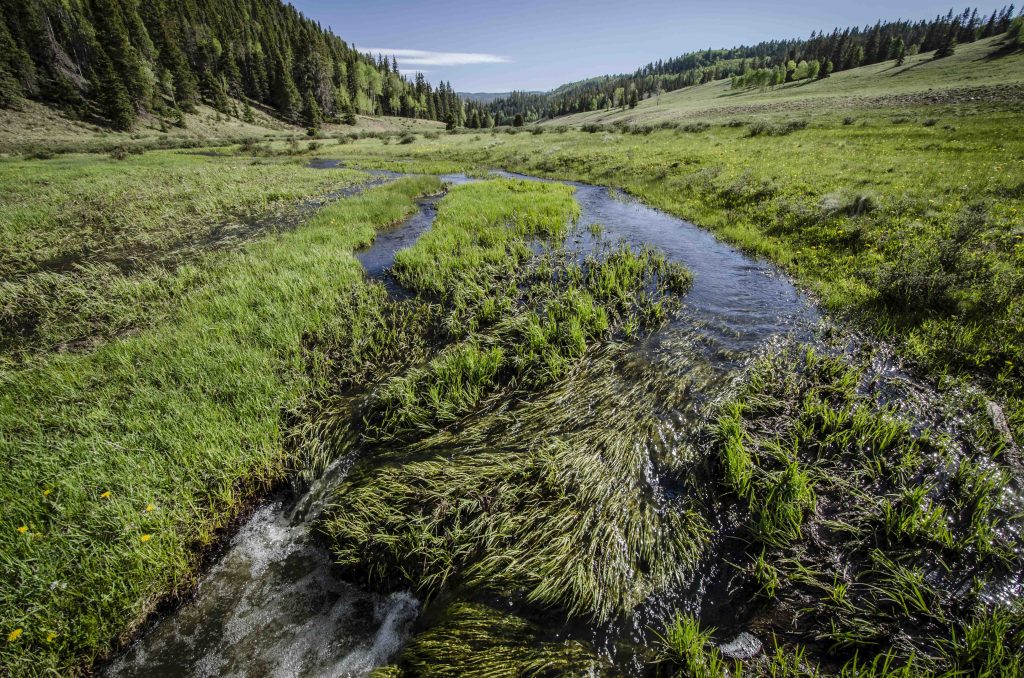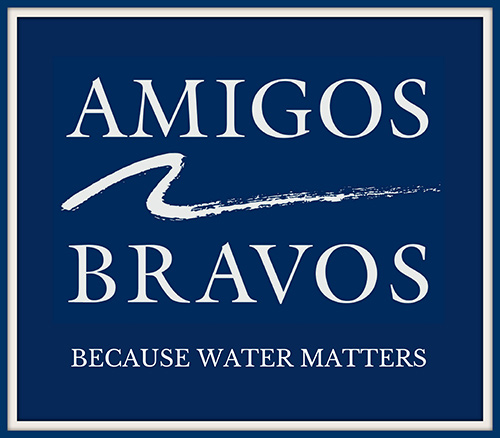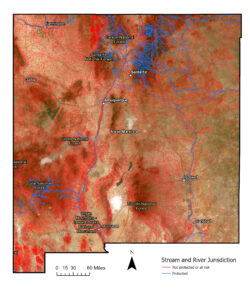
Ephemeral Stream in the Cruces Basin in northern New Mexico. Photo: Jim O’Donnell
The recent Sackett v EPA US Supreme Court ruling removes protections for the majority of wetlands and streams in New Mexico
New Mexico’s rivers, streams and wetlands are some of the most threatened waters in the country. Starting with several U.S. Supreme Court rulings in 2001, 2006, and the most recent ruling in 2023, which reduced the number of waters protected by the federal Clean Water Act, water quality protections for New Mexico’s waters have been under threat.
The constantly changing federal water protections over the past decade has disproportionately impacted New Mexico due to its large percentage of ephemeral/intermittent streams and closed basins (watersheds that do not feed traditional navigable waterways). The Sackett v EPA ruling on May 25, 2023, left New Mexico particularly vulnerable to pollution and other threats to clean water.
The Problem
Unlike federal rollbacks in other areas of environmental protection, New Mexico’s waters do not have state protections to fall back on. New Mexico is one of just three states that does not have a state surface water permitting program to control the discharge of pollution into rivers, streams, and lakes. There is now no entity with regulatory authority to manage existing discharges from the wastewater treatment plants, mines, federal facilities, and other polluters that currently discharge into these smaller New Mexico streams.
The Sackett ruling increases vulnerability for ephemeral and intermittent streams (96% of New Mexico’s streams according to the New Mexico Environment Department) and wetlands, which together provide critical wildlife habitat, as well as water sources for drinking water, irrigation, and recreation opportunities.
Is Your Watershed Impacted?
Click here to explore an interactive map showing New Mexico waters under threat.
Click here to explore an interactive map that details disturbance activities in New Mexico’s rivers feauring data on 404 permits (dredge and fill permits) and NPDES permits (permits that allow discharges into rivers and streams) and highlights how these locations correspond to water quality impairments. You can also view water quality information based on legislative districts.
Thanks to the Environmental Policy Innovation Center (EPIC), for the development of the wetland water quality map.
Solutions
The Sackett ruling magnifies the need for New Mexico to create it’s own surface water permitting program in order to remove the regulatory uncertainty created by unreliable federal protections and secure primacy for regulating discharges to the waters in our state. The people and communities who rely on these waters know best how to protect our state’s waters. Decisions should be made based on the best available data and mapping.
A comprehensive state surface water permitting program will protect both New Mexico’s streams and wetlands, as well as additional resources to protect them in the near-term.
NMED Appropriation Needs for FY 2025 (July 2, 2024 – June 30, 2025)
- $840,000 to conduct a statewide analysis of wetland and stream connectivity and to increase monitoring and enforcement of current rules and regulations to help protect surface water quality from unauthorized discharges in the near term while a surface water permitting program is being developed.**
- $600,000 for the development of a surface water permitting program, which is critical for building state capacity to address the impact of the 2023 Supreme Court decision. This is included in the executive budget.
Click here to sign a petition to support legislative appropriations to allocate funds to protect our state’s waterways and wetlands.
***The $840k special appropriation was not included in the Executive Budget because of the limitations on budget requests and NMED’s leadership recognition of the need to prioritize a pay equity line item that will better enable the agency to fill critical vacancies as well as retain current employees. NMED has indicated that they would welcome these funds. The $840k includes $150k for mapping and $690k for for near-term protections.
Resources (Click the bold-faced text to open a PDF in a new tab)
- US Supreme Court Sides with Polluters press release
- Protect NM Waters fact sheet
- Sign a Petition to support efforts to create a comprehensive vision to protect New Mexico’s water quality and future


